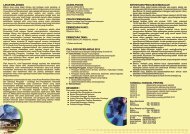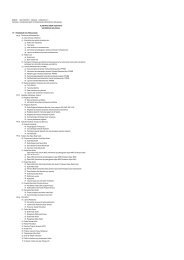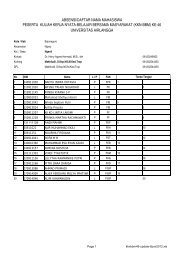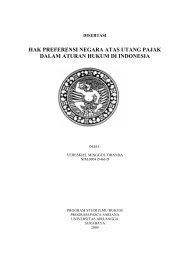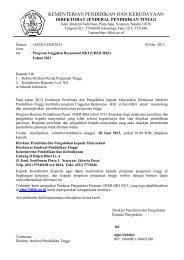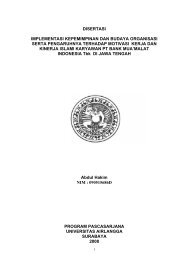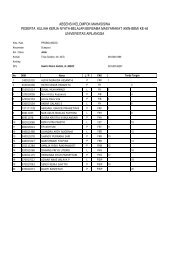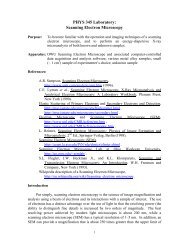Nietzsche's Naturalistic Ethics - UNAIR | E-Book Collection
Nietzsche's Naturalistic Ethics - UNAIR | E-Book Collection
Nietzsche's Naturalistic Ethics - UNAIR | E-Book Collection
You also want an ePaper? Increase the reach of your titles
YUMPU automatically turns print PDFs into web optimized ePapers that Google loves.
question about the substance of Nietzsche’s critique in the conclusion.A set of moral codes exempt from whatever criticism Nietzsche levies against ressentimentbasedmoral codes appears in GM II. These codes constitute what Clark (1994) calls Nietzsche’s“naturalistic social contract.” As Nietzsche points out in GM II, 4, there is an old idea that originatesin the debtor-creditor relationship, namely, that every damage has its equivalent and can be paid offin some way. A debtor unable to pay off his debt must give the creditor something else he owns.This may amount to letting the creditor inflict torture on himself because people enjoy watchingtorture or inflicting pain themselves (GM II, 6). An individual’s relationship with his communityis a debtor-creditor relationship. The community protects him, requiring that he pay back his debtsby respecting its rules. For these debtor-creditor relationships there is a background assumption thatthe individuals involved are roughly equally powerful (GM II, 8). These ideas give rise to a simpleidea of justice: “Everything can be paid off, and everything must be paid off.” So justice forNietzsche does not depend on ressentiment-driven moralities. On the contrary, he holds the just manin highest esteem, dedicating a long section in the Genealogy (GM II, 11) to explaining that the justman is not the man of ressentiment, appearances notwithstanding. This point is important in lightof Foot’s (1994) claim that the relevance of Nietzsche’s “immoralism” lies in his rejection ofjustice. Foot is right if she means a Christian notion of justice, or one derivative thereof, but wrongif she thinks that Nietzsche rejects ideas of justice outside that context. In this discussion in GM II,then, Nietzsche develops a viewpoint from which he can account for codes one may classify asmoral, but without appeal to ressentiment and guilt, or to any super-natural entity. 2020Nietzsche tells us in the Wanderer and his Shadow that virtues such as moderation,justice, and peace of mind would be regained by every free and conscious mind independently ofmorality (WS 212). Elsewhere, Nietzsche emphasizes that one of the flaws of Christianity is thatit destroyed all worldly justice (WS 81). For justice is about acting in proportion and about18




